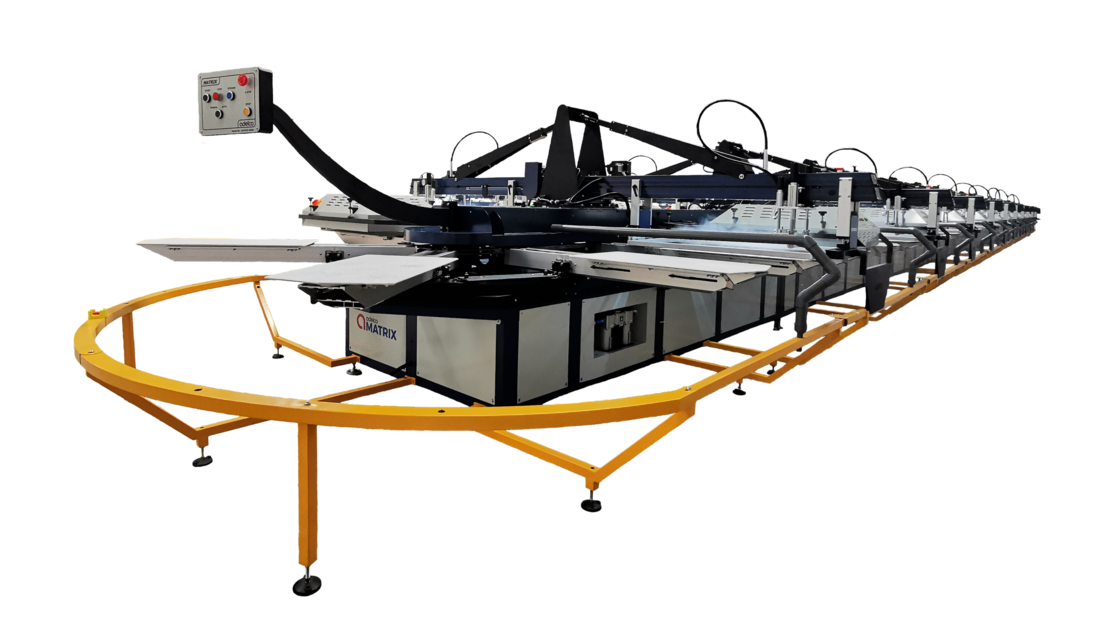Choosing Your Screen Print Machine: Comparing Presses & Carousels
When it comes to professional screen printing, choosing the right machine can make the difference between smooth production and frustrating bottlenecks. At Kissel+Wolf, we provide premium silk screen printers, screen print machines, and t-shirt screen press equipment that suit everyone—from DIY printmakers and small studios to large-scale textile decorators and industrial operations.
In this guide, we’ll compare our Adelco and KIWO presses and carousels, showing you their features, outputs, and best use cases—so you can confidently choose the perfect screen printing press machine for your workshop.
1. What to Consider Before Choosing Your Screen Print Machine
Before selecting a silk screen machine, consider:
Print Volume – how many garments per hour do you need to output?
Colour Capacity – do you need 1–2 colours or multiple layers for complex designs?
Space & Layout – manual carousels take less room; automatic carousels need more floor space.
Budget & ROI – invest in equipment that matches your business goals.
Precision – registration accuracy is critical for sharp, professional prints.
Support & Service – local support in Australia and New Zealand ensures reliability.
2. Kissel+Wolf’s Screen Solutions: Features & Output
Here’s an overview of our leading presses and carousels and what they can deliver.
Adelco Cyclone – Automatic Textile Carousel
All servo electric print head drive for consistent precision
Tool-free quick release pallets for fast setup
Advanced touch-screen control system with fault diagnostics
Print accuracy: ±0.02 at high speeds
Output: 1,000+ prints per hour
✅ Best for: growing textile decorators needing high-volume, reliable garment printing.
Adelco Matrix Oval – Modular Automatic Screen Printer
Servo-driven index and lift system for smooth, precise operation
Modular design: expand press size as you grow
Heavy-duty build for long-term, high-output production
Consistent accuracy for large-format garments
Easy operator workflow with accessible controls
✅ Best for: industrial-scale textile printers requiring flexible, ultra-high output.
KIWO Basic Carousel - (4, 6, or 8 colours)
Wooden pallet size: 450 × 550 × 18 mm
Rotatable screen frames & wooden plates
Space-saving, easy to carry and remove
Practical, simple design with elegant finish
✅ Best for: DIY printmakers or small workshops looking for space-saving manual printing.
KIWO Pro Carousel - (4 & 6 colours)
Aluminium pallet for durability
Micro-registration for precise multi-colour designs
Rotatable screen frames
Compact and easy to move
✅ Best for: studios that need more control and precision without moving to a full automatic press.
3. What Results Can You Expect from Each Machine?
Choosing the right silk screen printer affects:
Speed – Automatic presses like the Cyclone and Matrix Oval handle hundreds of garments per hour, while manual carousels are better for smaller batches.
Precision – Servo-driven automation ensures consistent registration, while Pro-level manual carousels provide fine-tuning for detail-heavy prints.
Scalability – Modular systems like the Matrix Oval expand with your business.
Consistency – Professional-grade machines deliver uniform results across every print run.
4. Matching Machines to Real-World Use Cases
Small Studio / DIY Printmaker → KIWO Basic or Manual Carousel: affordable, reliable, easy to use.
Mid-Sized Workshop → KIWO Pro or Adelco Manual: higher precision, good for expanding orders.
High-Volume Production → Adelco Cyclone: fast, automated, ideal for large t-shirt runs.
Industrial Scale → Adelco Matrix Oval: ultimate in speed, scale, and flexibility.
5. Tips for Maximising Your Screen Printing Press Machine
Keep pallets and screens aligned for accurate registration.
Regularly maintain and clean press components.
Choose mesh counts and emulsions suitable for your designs.
Train operators for efficiency and safety.
Pair the right inks and curing solutions with your press machine speed.
At Kissel+Wolf, we know that choosing the right screen print machine is about more than hardware—it’s about creating consistent, professional output that grows with your business. Whether you’re starting small with a t-shirt screen press, upgrading to an automatic carousel, or scaling up to high-volume production with the Matrix Oval, we have the machine to match your goals.
FAQs
Q: What is the difference between a silk screen printer and a screen printing press machine?
A silk screen printer usually refers to the process, while a screen printing press machine is the equipment used to apply designs onto textiles.
Q: How many prints per hour can I expect from an Adelco Cyclone?
With proper setup, the Cyclone delivers 1,000+ prints per hour.
Q: Do I need an automatic press machine for small runs?
Not necessarily—manual carousels like the KIWO Basic are great for short runs, samples, and DIY studios.
Q: Which screen print machine is best for large-format garments?
The Adelco Matrix Oval excels at handling large prints with consistent accuracy.
Q: How do I maintain my screen printing press machine?
Regular cleaning, checking alignment, replacing worn parts, and scheduled servicing will keep your machine running smoothly.




